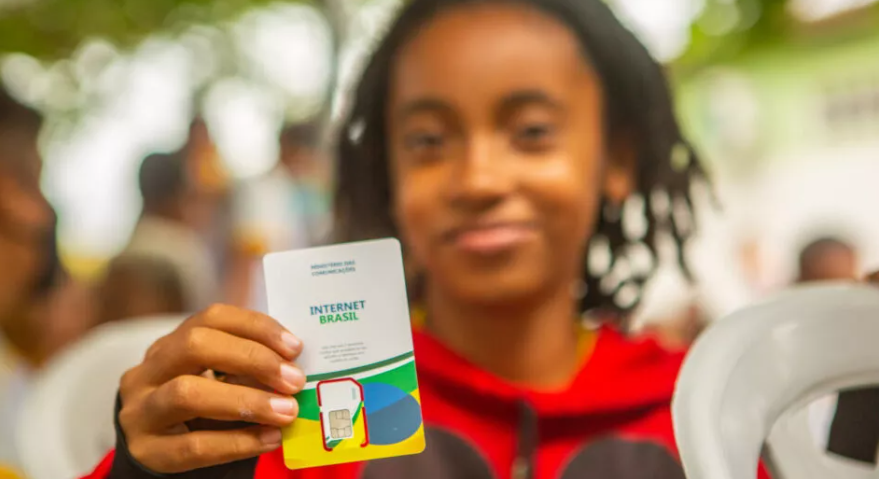Cases & Voices
Internet Brasil Program promotes digital inclusion of low-income children with free distribution of cell phone chips with internet access

The importance of digital transformation in schools across Brazil has become even more evident with the COVID-19 pandemic. In a country with so many social and regional disparities, Internet access is still a distant reality for many municipalities. With the aim of reducing this distance, the country’s government created the Internet Brasil Program at the end of 2021, executed by RNP.
(Source: GEÁNT Connect / Fabio Falcão Cazes, RNP) The initiative aims to bring connectivity and digital inclusion to students and their families through the free distribution of cell phone chips and data packages. The benefit is intended for basic education students of the public school network who are members of low-income families.
As a starting point for the Program, a Proof of Concept (PoC) was initiated in July 2022 in 15 schools in six cities in the Northeast region: Caicó and Mossoró, in the state of Rio Grande do Norte, Caruaru and Petrolina, in the state of Pernambuco, Juazeiro, in the state of Bahia and Campina Grande, in the state of Paraíba.
First deliveries
At the Dom Avelar Brandão Vilela Municipal School, in Juazeiro (BA), director Yandria Pereira translated the expectation for the official start of the program in a cordel poem she composed: “The moment of joy has arrived / And technology radiates us / Facilitating our day by day / Helping us with routine tasks / And today I bring good news / Hurray, hurray, hurray!”, she declared, much applauded by the students. “It’s the Internet Brasil program / Which will offer free Internet so you can enrich your knowledge”.
The school’s first chip went to 17-year-old Romildo Barbosa Amarante, a youth and adult education student. “It’s a good feeling to be the first, it’s rewarding”, celebrated the young man, who received the benefit from the hands of the local mayor.
Romildo told of the difficulties he faced in studying, especially during the pandemic. “My Internet access outside of school was very difficult. Now it’s going to help a lot, it’s going to be important for research and work”, concluded Romildo, who intends to take the medical entrance exam after finishing high school.
RNP’s customer relationship manager, Beatriz Zoss, was present at the chip delivery ceremony and highlighted RNP’s role as a facilitator of teaching throughout the country. “This moment corresponds to the materialisation of the fulfillment of our great mission of helping education in Brazil. We have sought to offer new technologies, encouraging development, mobility, and the approximation of knowledge through connectivity”, she commented.
At the end of the event, 12-year-old Lívia Gabriele de Souza Silva ran to the school’s small garden. She sat down on one of the flowerbeds to change her cell phone chip for the new neutral chip from Internet Brasil. “It will be very good because now we will have free Internet every month”, she celebrated. Lívia wants to be an astronaut and already knows what she’s going to use the Internet for. “I’m going to use the chip to study about NASA, the planets, the universe, all of that”, she explained.
Currently, Internet Brasil has 17 participating schools (all in the Northeast) and 5,755 chips activated out of the 6,950 chips requested.
Innovative technology
Chips handed out to students are neutral. This means that RNP will be able to define, remotely, the Internet operator to be used in each cell phone. The aim is to ensure that each student is always connected to the most efficient 3G and 4G networks in each region.




